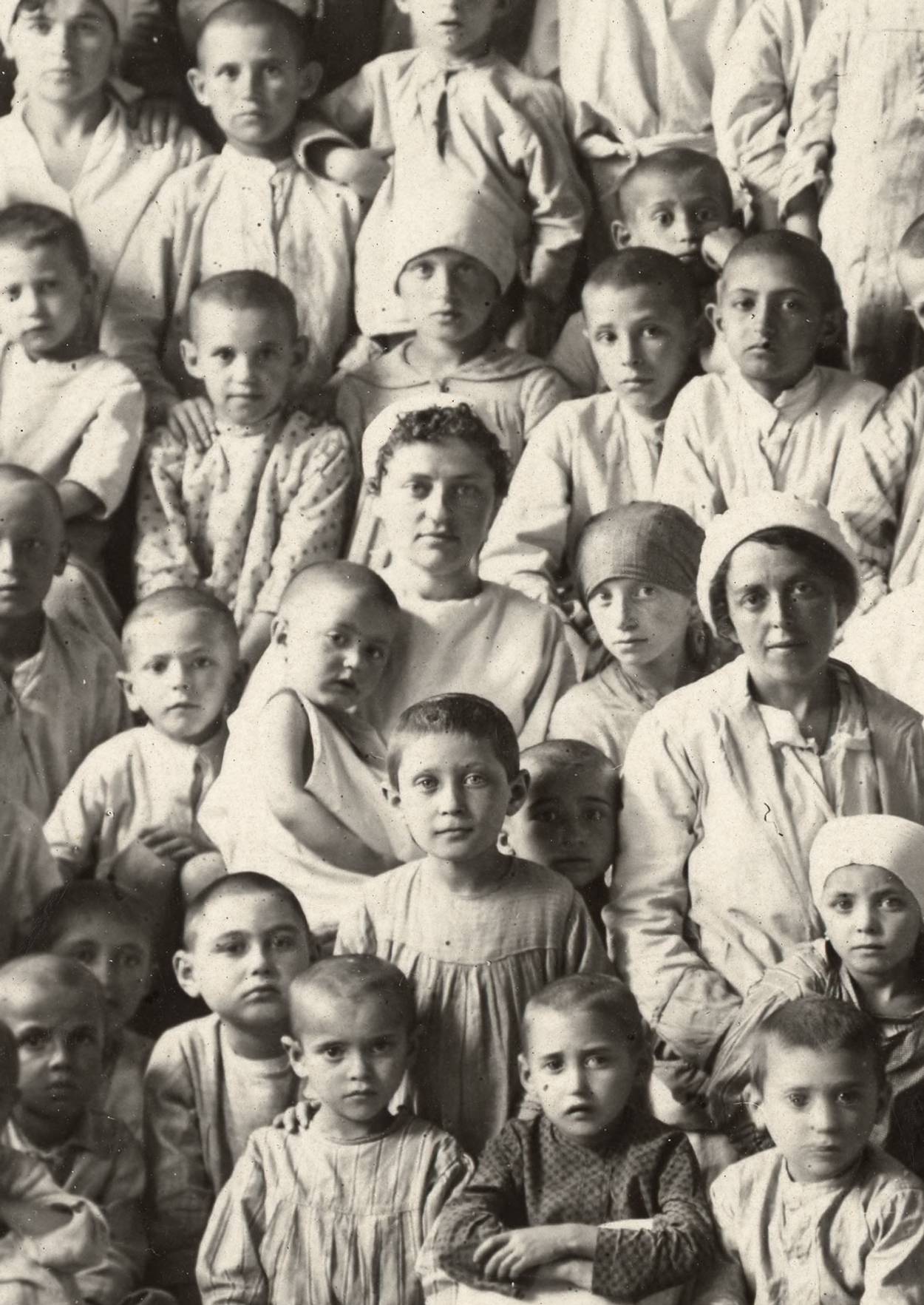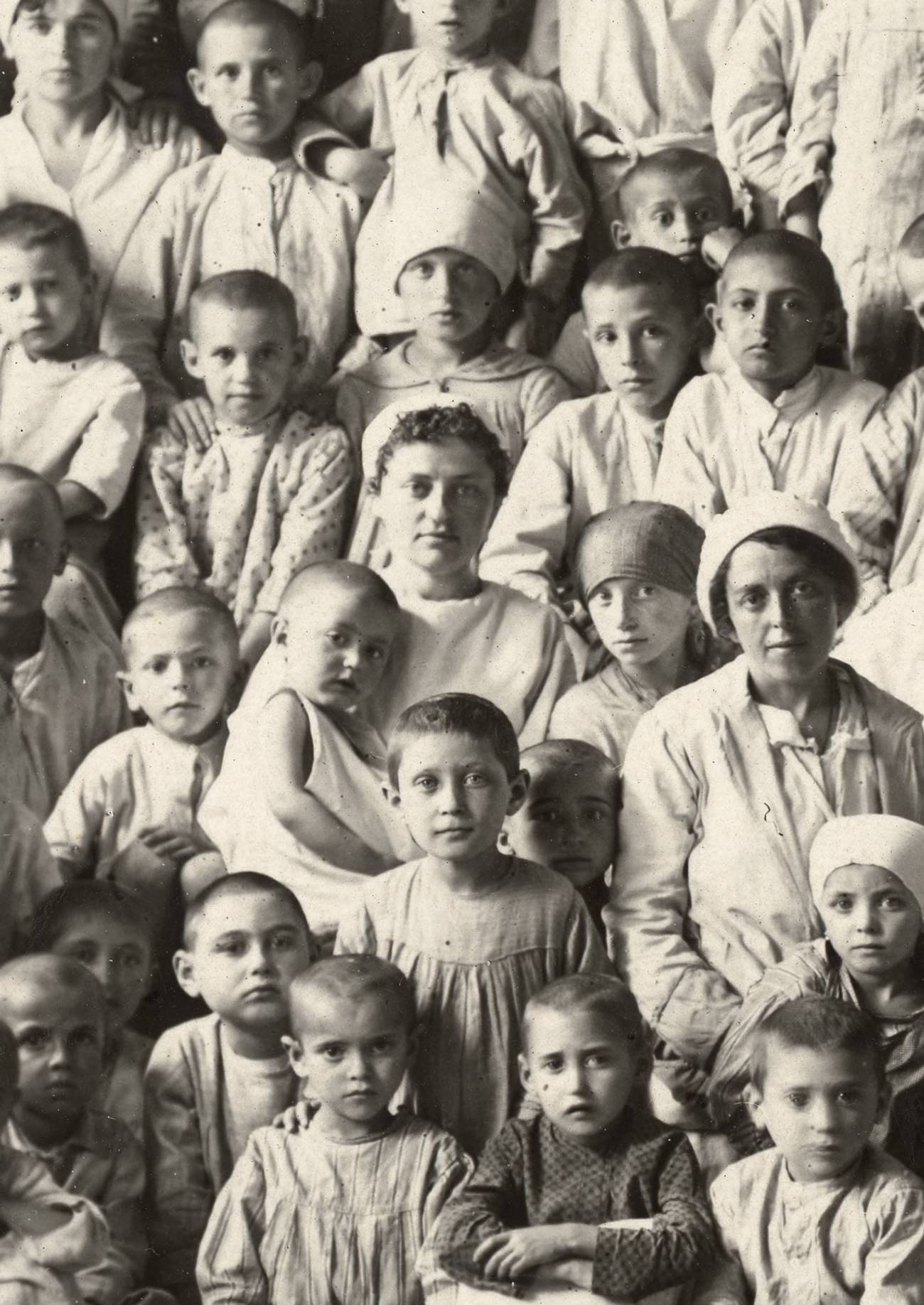how do you return to a town which does not exist
Poems of pain by a Ukrainian Jewish writer

Library of Congress

Library of Congress

Library of Congress

Library of Congress
I forgave myself for
my Ukrainian great-grandfather who joined a pogrom
against my Jewish great-grandfather
I forgave my Polish great-grandmother
who tore at the braids of my Jewish great-grandmother
I forgave myself for my moskal great-grandfather
who took the last bit of food from my Ukrainian great-grandmother
I forgave my Jewish great-grandmother
who informed on my Ukrainian great-grandfather
they are all here now
at the last supper
of my body
leaning on the table
each of them pulls
at my heart
rises up
carves out a slice
trots it out look
this is ours
and I have no time to ask with my every torn piece
why am I on the line?
eat my flesh
in memory of yourselves
drink of me, dearly beloved
grandma
grandpa
in the year nineteen twenty-two
my seven-year-old great-grandmother Rakhilia would run to the attic
to watch March reaching out for the village of Dashiv
what she saw was a boundless dumb famine
sucking warmth with its aged blue lips
out of her silent sisters
my great-grandma Rakhilia remembered
how in the year of nineteen twenty-two
their neighbor Bondarenko
brought a handful of cattle feed
said to her mother
wrap it up in a rag
and give it to the little ones, Sheina and Zyslia
something to suckle on
to make it through the winter
two tiny bags of bones
Sheina and Zyslia
father Hertz buried in the garden
and great-grandmother Rakhilia still remembered
the taste of mushy cattle feed
two last salivous lumps
out of which mother Syma made soup
in the famished February of the year nineteen twenty-two
why spurn victory, God?
we are the end of your proper name
here – fire and firewood
bind your tribe
an infant raised up on pitchforks time and again
virgins with severed breasts
an old woman raped by the side of her grandchildren
hear us singing your body
when you summon us
with the victors’ bullet
sh’ma Israel
adonai eloheinu
adonai ehad
every heart you drive, Tate
into your pocket
clench it like a stone
in the black-soil quivering
at the ready
to throw at your own self
how to survive what has already happened
and at every moment
pulls irresistibly towards itself
come closer
touch
yet you evade it
hide your hands behind your back
turning away your face
as if not recognizing
but as soon as it looms in the distance
something pulls on
the umbilical cord
dragging you into this tinted yellow flow
which remembers with its every bubble
the calm and colorless waters
deprived of the strength to flounder
you grow faint from pain
because now again you’re well
able to see them all so clearly
that only a muted line
separates the two pleas
yours – of not-being-born
theirs – of not-dying
how do you return to a town which does not exist
to a home – how to return when
it no longer exists like a heavy sorrow
streets with changed names –
swollen vessels that can’t find
an estuary
and you stand in this flood up to your throat
getting mixed up how to open the door for it
with a key on a string that you’d lost
sleepily fumbling
under your shirt – you can’t find it now in this whirl
in the ribbons of damp fabric or paper
layered tightly as rock strata
where even a landslide would not expose
the interior of a mountain
finally to go in
turn on the light and still not see
the fogged-up faces
turn it off – without noticing how you’d aged
daring to ask at last: how did I die?
thick fragrant smoke
encircles pampered memory
and you lie down in bed
to wake up as a thirty-five-year-old
in that house
feeling around the bed you get lost
looking for space
amidst the sullen ancestors
until you’re told
with the sudden falling of soil
onto a wrinkled contorted face
get ready, get ready
and not yet realizing
that it isn’t addressed to you
you ask: my beloveds, and where am I to go now?
where does one say goodbye to oneself these days?
trees are budding with war
salty like an explosion – war
fear of famished deserts begotten in us – by war
a jug filled with burning lead
it offers to us like a sacrament – war
with its faded eye glares
into faces
gathered into knots of war
feels the stumps of dwellings
with its greasy tentacles – war
out of unbroken mirrors
squeezes flowers of war
prettying up
she weaves into a wreath
of shame
the innards of homes
names and toponyms unknown to her
bedecked in blossoms of death
on its tremulous head, it trudges on
an ancient herbarium – war
a worn-out expired rattle – war
a creeping bag lady – war
gray and grim
its chin tied to its head
laid out on the table, unwashed and dumb – war
and nobody dares bury it
Translated from the Ukrainian by Oksana Maksymchuk and Max Rosochinsky.
Acknowledgements
“I forgave myself for,” “in the year nineteen twenty-two,” “why spurn victory, God?” first published in Copper Nickel. “how to survive what has already happened” first published in M-Dash. “how do you return to a town which does not exist,” “trees are budding with war,” first published in The Manhattan Review.
Alex Averbuch is a Ukrainian Jewish poet. His latest book is Zhydivsky Korol (The Jewish King), a 2023 finalist for the Shevchenko National Prize.